第99章
"I've got a piece of news for you, Katharine," he said directly they sat down to table; "I shan't get my holiday in April. We shall have to put off our marriage."He rapped the words out with a certain degree of briskness. Katharine started a little, as if the announcement disturbed her thoughts.
"That won't make any difference, will it? I mean the lease isn't signed," she replied. "But why? What has happened?"He told her, in an off-hand way, how one of his fellow-clerks had broken down, and might have to be away for months, six months even, in which case they would have to think over their position. He said it in a way which struck her, at last, as oddly casual. She looked at him.
There was no outward sign that he was annoyed with her. Was she well dressed? She thought sufficiently so. Perhaps she was late? She looked for a clock.
"It's a good thing we didn't take the house then," she repeated thoughtfully.
"It'll mean, too, I'm afraid, that I shan't be as free for a considerable time as I have been," he continued. She had time to reflect that she gained something by all this, though it was too soon to determine what. But the light which had been burning with such intensity as she came along was suddenly overclouded, as much by his manner as by his news. She had been prepared to meet opposition, which is simple to encounter compared with--she did not know what it was that she had to encounter. The meal passed in quiet, well-controlled talk about indifferent things. Music was not a subject about which she knew anything, but she liked him to tell her things; and could, she mused, as he talked, fancy the evenings of married life spent thus, over the fire; spent thus, or with a book, perhaps, for then she would have time to read her books, and to grasp firmly with every muscle of her unused mind what she longed to know. The atmosphere was very free.
Suddenly William broke off. She looked up apprehensively, brushing aside these thoughts with annoyance.
"Where should I address a letter to Cassandra?" he asked her. It was obvious again that William had some meaning or other to-night, or was in some mood. "We've struck up a friendship," he added.
"She's at home, I think," Katharine replied.
"They keep her too much at home," said William. "Why don't you ask her to stay with you, and let her hear a little good music? I'll just finish what I was saying, if you don't mind, because I'm particularly anxious that she should hear to-morrow."Katharine sank back in her chair, and Rodney took the paper on his knees, and went on with his sentence. "Style, you know, is what we tend to neglect--"; but he was far more conscious of Katharine's eye upon him than of what he was saying about style. He knew that she was looking at him, but whether with irritation or indifference he could not guess.
In truth, she had fallen sufficiently into his trap to feel uncomfortably roused and disturbed and unable to proceed on the lines laid down for herself. This indifferent, if not hostile, attitude on William's part made it impossible to break off without animosity, largely and completely. Infinitely preferable was Mary's state, she thought, where there was a simple thing to do and one did it. In fact, she could not help supposing that some littleness of nature had a part in all the refinements, reserves, and subtleties of feeling for which her friends and family were so distinguished. For example, although she liked Cassandra well enough, her fantastic method of life struck her as purely frivolous; now it was socialism, now it was silkworms, now it was music--which last she supposed was the cause of William's sudden interest in her. Never before had William wasted the minutes of her presence in writing his letters. With a curious sense of light opening where all, hitherto, had been opaque, it dawned upon her that, after all, possibly, yes, probably, nay, certainly, the devotion which she had almost wearily taken for granted existed in a much slighter degree than she had suspected, or existed no longer. She looked at him attentively as if this discovery of hers must show traces in his face.
Never had she seen so much to respect in his appearance, so much that attracted her by its sensitiveness and intelligence, although she saw these qualities as if they were those one responds to, dumbly, in the face of a stranger. The head bent over the paper, thoughtful as usual, had now a composure which seemed somehow to place it at a distance, like a face seen talking to some one else behind glass.
He wrote on, without raising his eyes. She would have spoken, but could not bring herself to ask him for signs of affection which she had no right to claim. The conviction that he was thus strange to her filled her with despondency, and illustrated quite beyond doubt the infinite loneliness of human beings. She had never felt the truth of this so strongly before. She looked away into the fire; it seemed to her that even physically they were now scarcely within speaking distance; and spiritually there was certainly no human being with whom she could claim comradeship; no dream that satisfied her as she was used to be satisfied; nothing remained in whose reality she could believe, save those abstract ideas--figures, laws, stars, facts, which she could hardly hold to for lack of knowledge and a kind of shame.